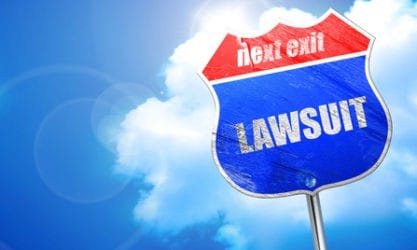What is a motion?
A motion is simply a request filed with the court asking a judge to issue a ruling or order. When one party files a motion, notice is also given to the attorney for the opposing party. Virginia’s motions practice procedure is explained in Va. Sup. Ct. R. 4:15.
Motion to Compel Discovery
In relation to discovery, motions to compel are often in response to two scenarios. The first scenario is when the opposing party or their attorney is nonresponsive, meaning discovery requests were sent/received and the deadline passed without response. The second scenario is when the opposing party or their attorney has provided an insufficient response meaning the answers provided are incomplete.[1]
If the opposing or their attorney have not responded upon the deadline date, the motion to compel is relatively straight forward. However, if the motion is filed due to insufficient response, it gets more the court will need to hear argument from both sides as to the response. The more specific you can be about the response you are looking for, the more likely you are to get what you want. Sometimes you simply want a real answer to a direct question instead of vague and/or evasive responses. For example, let’s say you are in a contract dispute in Virginia, and you have requested production of ledger records for a specific date. If the opposing party responds with “unrelated” or “irrelevant,” this would be considered an insufficient response. The other response that could be deemed insufficient is if the opposing party provided only one of two pages for the date in question. A judge could order production of the requested document in either case. There are many objections that attorneys often make to discovery requests; not all of them are valid.
Virginia Court Rules
Before filing a motion in Virginia, however, counsel should generally make a good faith effort to resolve the discovery dispute before filing and notice of the motion has been provided to opposing counsel. This means that the demanding party should often reach out to the other side and explain the perceived deficiency before heading to a hearing. Detailed records of these conversations and correspondence should be kept. The last thing you want is a he said/she said scenario where two or more attorneys are representing dueling stories to the judge. Usually the opposing parties also agree on mutually permissible dates for the hearing before scheduling court dates/times.
Discovery disputes are one area of litigation that is extremely complex and provides many pitfalls for those who are proceeding without an attorney.[2] Remember, your case could succeed or fail based upon your discovery attempts and your answers to discovery. There are many tactics that skilled counsel will use to avoid a full response on behalf of their client. Not all of these tactics are in good faith. Contact a Virginia litigation attorney if you have questions about your specific case.
[1] Under Va. Sup. Ct. R. 4:12(a)(3), an evasive or incomplete answer is treated “as a failure to answer”.
[2] Keep in mind that the moving party (party seeking discovery answers) may request that their attorney’s fees be paid as part of the motion process under Va. Sup. Ct. R. 4:12(a)(4).
Ryan C. Young | Richmond, Virginia | Civil Litigation Attorney

